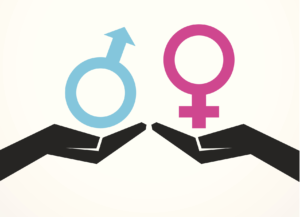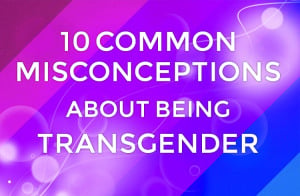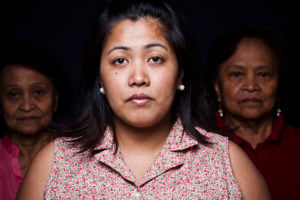A friend called while I was in the middle of working.
I picked up – “Hey, I’m busy right now. Can I call you back?” – without even saying hello or giving her a chance to speak.
This wasn’t my pattern of interaction only over the phone, but also in person. I’d be hanging out with a friend and while they were telling me about an issue at work, at home, or with their partner, I’d interrupt to input my opinion or try and fix their problem.
I’d react with judgmental phrases like “Why would you do something like that?” or “You really should’ve been more understanding.” And more recently, I almost lost a friendship because I was no longer someone my friend felt comfortable talking and opening up to for fear of rejection.
Figuring out how to create an environment where someone feels free to express themselves is something I didn’t used to pay much attention to.
Rarely did I think about my words and reactions to others when they came to me to address a situation or open up about something personal. In fact, I saw most difficult conversations as a personal attack – and in turn, I’d defend and try to prove myself.
Imagine how that must have been for the person coming to me to express a feeling, need, desire, or opinion. Coming from a place of insecurity, I made it impossible for others to feel heard when talking to me.
It’s very easy for us to get caught in our automatic reactions.
Day in and day out, we speak and react the same as we’ve done for years. We do this because we don’t realize that learning to communicate with ourselves and others isn’t something we’re born knowing how to do.
We grow up learning from those around us, so much of the way we interact isn’t actually coming from us, but from our parents, friends, lovers, and what we see in movies, on television, or in books. We fail to see not only our role within our conversations, but the bigger picture of how our words and reactions affect our reality.
Derogatory comments about bodies, gender, or sexual orientation all perpetuate the notion that we need to be different than who we are. We use language that’s subtractive, not additive, constantly picking ourselves and others apart because we don’t know we have a choice.
Our words have the power to manifest a culture that shames, judges, and demoralizes – or one of acceptance. Our speech can create hate around what we don’t understand or don’t agree with or it can create curiosity, opening us up to see from another perspective. If we learn new ways of communicating, it means we no longer have to speak in ways that continue a cycle of oppression or that create one.
That’s why, for the last five years, I’ve been practicing a mix of mindful, nonviolent, and what I call self-responsible communication. It’s changed not only how I interact with myself, but also others and—well—the world.
What I’ve learned is that for us to cultivate an environment where others feel comfortable expressing themselves, we have to be present, commit to a non-judgmental attention, and refrain from trying to fix or set someone straight.
And because our words have the power to manifest a culture of acceptance., I’d like to offer you what I’ve learned.
1. Being Present in the Moment
I was having coffee with a friend recently when she started talking about an issue she was having with a co-worker.
By the second sentence, my mind started to wander. I thought about what I needed to get done after we met. Then my mind was captured by the couple next to us and their conversation. And then I shook my head when I remembered I forgot to send an e-mail.
When I finally returned to the conversation, my friend – who, remember, was hurting – said, “You’re not listening to a word I’m saying, are you?”
The truth is, when we aren’t present with whomever we’re with, we aren’t creating a safe space for them to feel heard. Withholding our attention can be cruel, and it can induce a feeling of separateness.
If it’s cruel, then why do we do it? We do it because we live in a culture that values productivity and multitasking over personal relationships, an individualist culture where I’m more important than you, and a misogynist culture that teaches women not to be present in their bodies.
Being present, then, means giving our focused attention to the person we’re with. It means that from moment to moment, we’re aware not only of what the other person needs, but also what we, ourselves, are feeling and thinking.
We stay present by listening or witnessing their thoughts and feelings, knowing that they, like all of us, deserve to be heard.
Many of us have been conditioned to see those who are different from us as “the other” – to cast judgment on someone because they live their life differently than we do. But the truth is that just because we choose to live our lives in a certain way doesn’t mean that is the only way to live.
The point of communication isn’t to change someone – to force them to see the world more like you – but to listen to their views (whether you agree or not) and let them be who they are.
By offering our focused attention, we signal to the other that what they have to say is necessary and valuable.
If I were to have been present when I met my friend for coffee, I would have made her my focus of attention. And when I noticed my mind shifting off into the future of what I needed to get done, or my thoughts around what the table next to me was saying, I would refocus on the conversation we were in – the friend I was with.
Constantly refocusing on the moment keeps us tuned in to our intention – to be present.
When we catch ourselves in conversations interrupting others, talking over them, thinking about what we need to get done, or casting judgment, that’s when we have the opportunity to shift from cultivating a feeling of oppression to one of freedom.
2. Practicing Non-Judgmental Attention
A handful of years ago, when my friend told me she was having an affair with a married man, my reaction was immediately “What are you thinking,” “Why are you doing this to yourself,” and “What’s the point?”
My feeling of there being a right way and a wrong way to live shifted into high gear, and my judgy pants were tied tight.
You can imagine what this did for my friend: nothing. All it did was make her feel worse and less likely to tell me about their relationship ever again. What I was doing was responding from a place of what society warrants as good or bad, not actually seeing the situation for what it was.
Of course, what makes opening up to others difficult is the fear not only of what someone might say, but also what the other person may think.
I’ve had friends who weren’t able to be honest with their parents about their sexual orientation or having an abortion because they were frightened they’d be seen differently afterwards. And this isn’t something that happens only with older figures, but with partners and friends, too.
Nobody feels comfortable if they’re being judged, which is why in conversations, we want to strive for a focused non-judgmental attention.
If we can create a space where whoever we’re with feels comfortable being themselves and sharing what’s coming up for them, then we show them our acceptance of who they are as they are.
There’s no need for them to be better or more-than. Here, who they are is enough. We reconfirm that their life isn’t ours to live.
To cultivate a non-judgmental attention means understanding that just because we see things one way doesn’t mean that everyone else should as well. Our way is not better than (or even less than) another’s way. It’s simply different.
Instead of making others feel like they’re bad or wrong, we want to listen without evaluation in our conversations with them – giving each person the freedom to think, feel, and be as they choose.
If we begin to focus more on the same universal truths we desire – like love, happiness, peace, and abundance – then we begin to see the person in front of us as one who yearns to suffer less in this world. The same as us.
If I would have listened to my friend instead of my thoughts, I would have been able to be there for her in a way that was helpful.
If, in conversation, you notice judging thoughts coming in, simply note them with a gentle attention, and let them go to come back to the present moment.
3. Listening, Instead of Attempted Fixing
I sat across from a friend who was going through a pretty bad breakup.
She had felt caught off guard by it and believed that if she had only been more communicative of her feelings, things maybe would have been different. Hurting, she looked to me for consolation.
Because I didn’t want my friend to feel badly, I (of course) wanted to help mend the pain she was feeling. I gave her advice, including my thoughts on what may have happened, but no matter what I said or tried to get her to see, it came back to her saying the same sad phrases again and again.
And this is common. Because most of the time when we express ourselves, we do so without wanting someone to fix our situation. We just want someone to be there for it – to empathize.
The practice of empathy creates a feeling of community, sharing, and acceptance. It fosters the idea that what we’re going through and what we’re feeling is okay, that there’s no need to change. Intentional empathy creates balance in conversations so that there’s never a need to defend or attack.
Fixing other people is something we tend to do automatically because our true nature is to be helpful, and we think that by offering our perspectives, we’re doing just that – helping them.
But in reality, a lot of times, trying to give someone an answer that only they themselves can find on their own does the opposite. It can be hindering.
A way out of this habit is to notice when we’re doing it – paying attention to the feeling inside when we want to fix or give advice.
The more we notice ourselves doing it or the feeling inside before we do, the easier it will be to stop ourselves from acting. Even if we’re asked for our opinion, we can give the other person the tools needed, still knowing that it’s up to them to figure out how to use them.
***
Our role in conversations is to be kind, honest, and helpful – to witness another’s feelings and hold space for them. Not to tear them down and create separateness.
By paying attention to how we interact with others, we have the opportunity – at every moment – to create a safe space for sharing and expression and in turn a world of acceptance.
[do_widget id=’text-101′]
Cynthia Kane is a certified meditation and mindfulness instructor. She received her BA from Bard College and her MFA from Sarah Lawrence College. Her work has appeared in numerous publications, including the Washington Post, BBC Travel, Yoga Journal, Refinery29, and more. Her new book, How To Communicate Like a Buddhist, will be out April 2016. To discover your communication style click here. She lives in Washington, DC and offers workshops and private programs. Visit her website here.
Search our 3000+ articles!
Read our articles about:
Our online racial justice training
Used by hundreds of universities, non-profits, and businesses.
Click to learn more





















